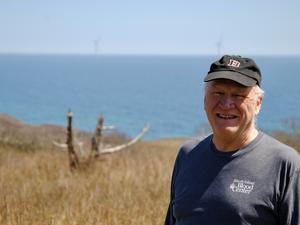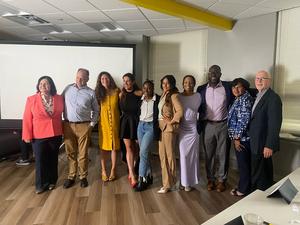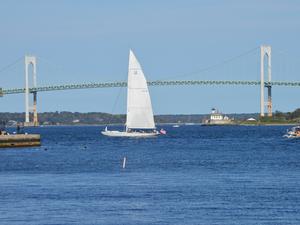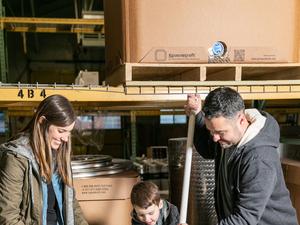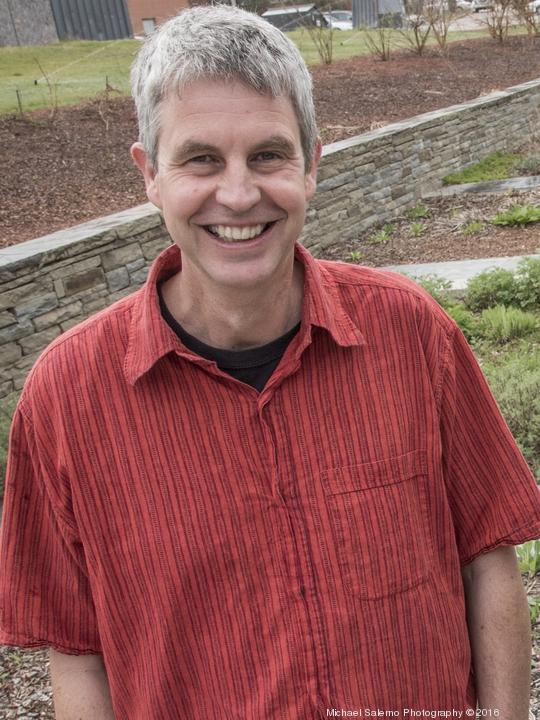
In 2018, a Reuters report detailing the water crisis in India reported that 70% of the country's groundwater was polluted in some way. Just two years later that number was hovering around 80%. It's common in some areas for residents to line up daily with cans and buckets in hand for water from tankers. On the rare occasions water does flow from taps, it is often dirty, leading to disease, infection, disability and even death, experts say.
Thomas Boving, a professor of geosciences and engineering at the University of Rhode Island, is hoping he can help by bringing his expertise as a hydrologist and pollution remediation. Last week, URI announced Boving would be traveling to teach and conduct research in India, thanks to a Fulbright-Nehru Academic and Professional Excellence Award.
Boving will be working at the Indian Institute of Technology Roorkee, which, he said, offers unique opportunities to engage in project-oriented exchanges with researchers and government representatives from the National Institute of Hydrology Roorkee and the Department of Hydrology.
Sign up for The Beat, Rhode Island Inno’s free daily innovation newsletter. See past examples here.
Water pollution is a longstanding problem in India, Boving said, and cleanup efforts have met a variety of political and technological headwinds but he's hoping to continue his work in the continent.
Boving has previously worked in India and Indonesia, where he and colleague Soni Pradhanang, an associate professor of geosciences at URI, have used floating wetlands — buoyant mats with live vegetation — to clean ponds and other bodies of water. At home, he's worked on systems for destroying PFAS compounds, the stubborn “forever chemicals” that contaminate water supplies serving about a third of Americans and researched saltwater intrusion into well water along the Rhode Island coast.
In India, he said, people are experiencing much of the same environmental pollution issues that the western economies were confronted with several decades ago.
No 'silver bullet'
"Rivers are polluted by untreated sewage and industrial effluents," he said. "Toxic compounds are not properly disposed of, and the construction of water-treatment infrastructure lags behind the rapid and uncontrolled urban growth. Besides water quality problems, India is also facing water quantity issues i.e., excessive withdrawal of groundwater has led to rapidly falling water levels in wells, causing farmers to abandon their field in some areas where drilling deeper wells is either too costly or where the quality of the groundwater decreases with depth."
Unfortunately, there's no "silver bullet solution" for all these problems but, he said, there are some innovative technologies that are rooted in ancient water treatment approaches.
Boving said one example is to drill wells near rivers and exploit natural water-treatment processes to purify water. Such systems are known as riverbank filtration (RBF), and if they're engineered correctly, the treatments can result in highly improved water quality.
"There are several places in India where RBF technology is already employed, including in areas where my team has been active for over 15 years," he said.
Boving also has plans to work on a plan already in progress to clean up groundwater at a site contaminated by uranium. The current remediation plan led by officials at Roorkee calls for a permeable reactive barrier (PRB), a technique in which groundwater is channeled through a membrane that eliminates contaminants through chemical reactions.
A large part of Boving's mission will be through education. Boving said although powerful water cleanup technologies exist, limited awareness and a general lack of experience implementing them is costing India valuable time in addressing its mounting water-pollution problems. Boving said he's specifically traveling to India to close that gap — through mentoring, curriculum-building and public education about remedial technologies.
"The many new technologies that have been developed, mostly in the western economies, over the years have to be demonstrated to government officials and professionals alike in India," he said. "This step is important to build capacities that currently do not exist in most parts of India. Toward this goal, it is important that academic partners in the U.S. and India collaborate on specific water treatment technologies to learn from each other and train the young professionals and government officials that will have to implement and oversee these technologies in the future."
Boving will be in the Ocean State for a while in the meantime. He isn't set to depart for India until January 2023.
